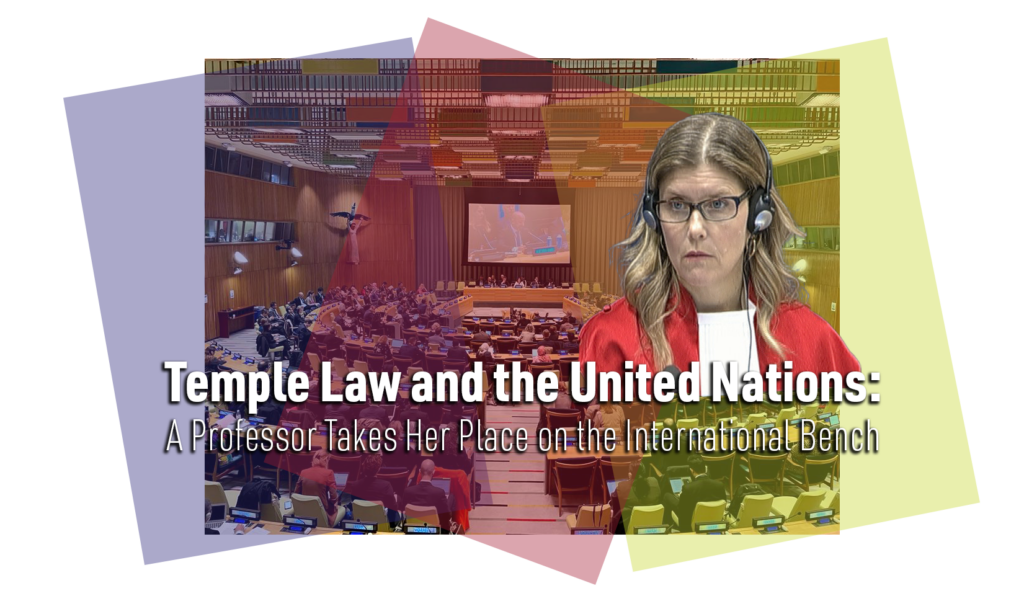This is the second article in a series about how faculty from Temple Law are helping to shape law and policy at an international level. The professors highlighted in this series have ties to the United Nations, are actively involved in roles that have an impact on the global stage, and are putting international law theory into practice.
Professor Margaret deGuzman, the James E. Beasley Professor of Law and Co-Director of the Institute for International Law and Public Policy at Temple Law School, is a globally respected scholar of international criminal law with a distinguished record of service to the international law community. In December 2021, UN Secretary General António Guterres appointed deGuzman to a seat on the International Residual Mechanism for Criminal Tribunals.
Known as ‘The Mechanism,’ this roster of 25 judges presides over trials and appeals for people accused of genocide, crimes against humanity, and war crimes. Professor deGuzman is the only American law professor serving in such a role.
The Mechanism was established by the UN Security Council in 2010 to carry out the essential residual functions of the International Criminal Tribunal for Rwanda and the International Criminal Tribunal for the Former Yugoslavia, which closed in 2015 and 2017, respectively. The Tribunals had been convened under the authority of the Security Council to adjudicate charges of genocide, crimes against humanity and war crimes following conflicts in those countries.
The purpose of the Mechanism, according to deGuzman, is to “provide accountability for the victims in Rwanda and the Former Yugoslavia, and to contribute to global justice more broadly.”
Professor deGuzman served in the trial chamber in the case against Félicien Kabuga, who stands accused of facilitating the genocide of more than a half million Rwandan Tutsis, an ethnic group of the Republic of Rwanda. Kabuga is accused of using his political connections and influence through extremist media outlets, as well as his vast wealth to import 500,000 machetes to Rwanda, in carrying out the 1993 genocide.
Kabuga spent more than two decades on the run before being captured in France in 2020.
In August 2023, the case was stayed indefinitely after appeals judges affirmed the Trial Chamber’s determination that the 90-year-old Kabuga is unfit to stand trial due to dementia. Kabuga remains in custody in the Hague pending efforts to identify a state for his provisional release.
“This court blends what we call the common law or adversarial system with the civil law or inquisitorial system, making it quite different from national courts,” deGuzman said. “For instance, there are no juries, like in civil law systems, but the parties often present the evidence in ways that reflect common law traditions.”
For law students looking to pursue a career in international criminal law, deGuzman suggests gaining experience in criminal law in their national systems, and then seeking opportunities to work in global justice, whether at an international court or at a non-governmental organization.
“Ideally this work blends expertise in criminal law with an understanding of international law, especially international human rights and humanitarian law,” deGuzman said.
Professor deGuzman called the opportunity to work among the 25 judges of the Mechanism a “tremendous honor.”
“To have the opportunity to participate in the development of global justice and to work with colleagues from around the world who have the common goal of contributing at both the national and global levels has been a fantastically interesting and challenging experience.”

